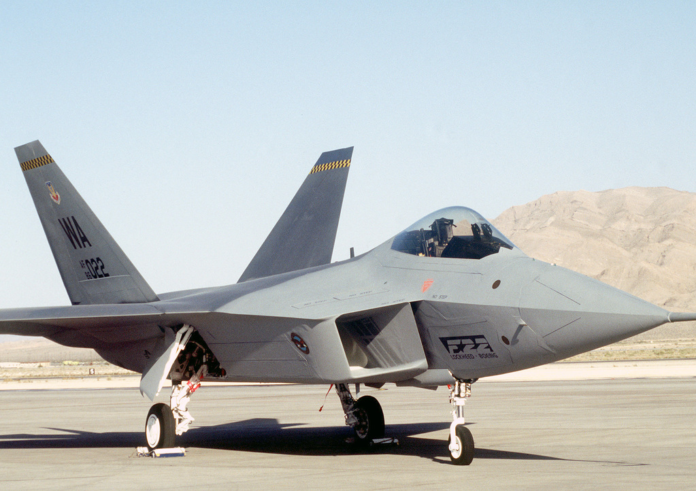For many, the image of military aircraft is shaped less by reality and more by the glamour of pop culture. From adrenaline-fueled blockbusters to sleek advertisements, the public’s imagination is populated with aviator-clad heroes, jets roaring past Mach 10, and sleek, intimidating war machines. These portrayals, while entertaining, often oversimplify the complexity of military aviation and perpetuate misconceptions.
The truth is far more nuanced—and, in many ways, even more remarkable. Modern fighter jets, with their unmatched engineering and advanced technology, embody a sophistication that often escapes the cinematic lens. Their design prioritizes precision, endurance, and versatility, qualities that rarely translate into box-office appeal. What makes these aircraft truly extraordinary—intricate avionics, stealth capabilities, and unmatched tactical functionality—doesn’t always scream Hollywood drama.
These inaccuracies not only skew perceptions but also dilute the public’s appreciation for the intricacies of military aviation. By focusing on the spectacle, we miss the ingenuity and discipline that define these machines and the people who operate them. This overview seeks to peel back the glossy veneer of media portrayals and offer a glimpse into the reality—a world where technology and strategy intersect in ways that are cooler than fiction dares to show.
Fighter Jets and Dogfights: Commonly, people link military aircraft with the thrilling imagery of fighter jets engaged in high-stakes dogfights, a portrayal frequently depicted in movies and video games. This association often brings to mind sleek, high-speed, and agile planes such as the iconic F-16, perpetuated by the cinematic allure of productions like Top Gun.
Filmy dogfights are often exaggerated and don’t accurately represent the realities of modern fighter aircraft operations. In reality, fighter aircraft engagements are complex and strategic, involving advanced technologies, careful planning, and adherence to rules of engagement. The focus is not solely on dramatic one-on-one dogfights but includes broader considerations such as situational awareness, electronic warfare, and coordinated efforts within a larger military strategy. The depiction in movies tends to oversimplify these aspects for dramatic effect.

Image Credit: Alan Wilson
Bombers and Explosions: The association of military aircraft, particularly bombers, with dropping bombs and causing large explosions is a prevalent image often portrayed in war movies and highlighted in news coverage. This cinematic and media representation tends to emphasize the dramatic impact of aerial bombardments, showcasing explosive moments that capture attention. However, the reality of bomber operations extends beyond these sensationalized images. In practical military applications, bombers play diverse roles, including strategic deterrence, long-range reconnaissance, and even humanitarian aid delivery, underscoring the complexity and versatility of their missions. The oversimplification in media can contribute to misconceptions about the sole purpose and nature of bomber aircraft.

Image credit: The U.S. National Archives
Air Shows and Stunts: Airshows, adorned with aerobatic displays and daring stunts performed by military aircraft such as the Blue Angels, Surya Kiran, or the Red Arrows, often contribute to shaping public perceptions. The captivating performances create an impression of these aircraft as sources of entertainment and spectacle, showcasing their agility and precision in the skies. These sophisticated machines serve critical roles in national defence, emphasizing the need to appreciate both their operational significance and their awe-inspiring public presentations.

Image Credit: Ruben Alexander
Stealth and Invisibility: Some may perceive military aircraft as being virtually invisible or nearly impossible to detect, a notion influenced by the prevalence of stealth technology. Often exaggerated or misunderstood, this perception stems from the advanced design features implemented to reduce an aircraft’s radar cross-section and infrared signature.
While stealth technology undoubtedly enhances an aircraft’s ability to evade detection, it is essential to acknowledge that complete invisibility is an overstatement. Stealth capabilities are strategic tools, not absolute cloaks, and their effectiveness depends on various factors, dispelling the misconception that military aircraft equipped with stealth technology are entirely undetectable.

Image Credit: US National Archives
War and Destruction: There exists a common perception that military aircraft are primarily instruments of war, solely associated with causing destruction. However, this perspective often neglects the multifaceted roles these aircraft play in promoting global stability. Beyond combat, military aircraft are indispensable in peacekeeping efforts, where they contribute to surveillance, monitoring, and logistical support to maintain peace in conflict zones. Additionally, they play pivotal roles in humanitarian aid missions, facilitating the rapid transport of essential supplies to disaster-stricken areas. Acknowledging these non-combat functions is imperative to appreciate the broader contributions of military aviation to international security, diplomacy, and humanitarian endeavours.



